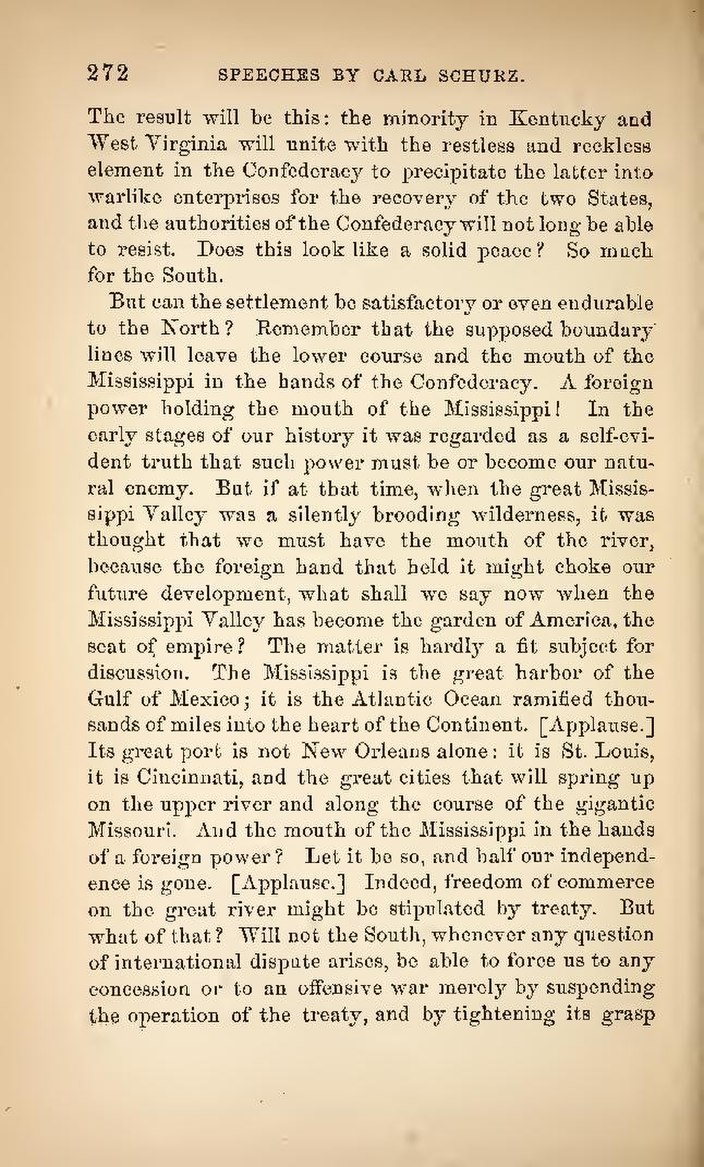The result will be this: the minority in Kentucky and West Virginia will unite with the restless and reckless element in the Confederacy to precipitate the latter into warlike enterprises for the recovery of the two States, and the authorities of the Confederacy will not long be able to resist. Does this look like a solid peace? So much for the South.
But can the settlement be satisfactory or even endurable to the North? Remember that the supposed boundary lines will leave the lower course and the mouth of the Mississippi in the hands of the Confederacy. A foreign power holding the mouth of the Mississippi! In the early stages of our history it was regarded as a self-evident truth that such power must be or become our natural enemy. But if at that time, when the great Mississippi Valley was a silently brooding wilderness, it was thought that we must have the mouth of the river, because the foreign hand that held it might choke our future development, what shall we say now when the Mississippi Valley has become the garden of America, the seat of empire? The matter is hardly a fit subject for discussion. The Mississippi is the great harbor of the Gulf of Mexico; it is the Atlantic Ocean ramified thousands of miles into the heart of the Continent. [Applause.] Its great port is not New Orleans alone: it is St. Louis, it is Cincinnati, and the great cities that will spring up on the upper river and along the course of the gigantic Missouri. And the mouth of the Mississippi in the hands of a foreign power? Let it be so, and half our independence is gone. [Applause.] Indeed, freedom of commerce on the great river might be stipulated by treaty. But what of that? Will not the South, whenever any question of international dispute arises, be able to force us to any concession or to an offensive war merely by suspending the operation of the treaty, and by tightening its grasp
